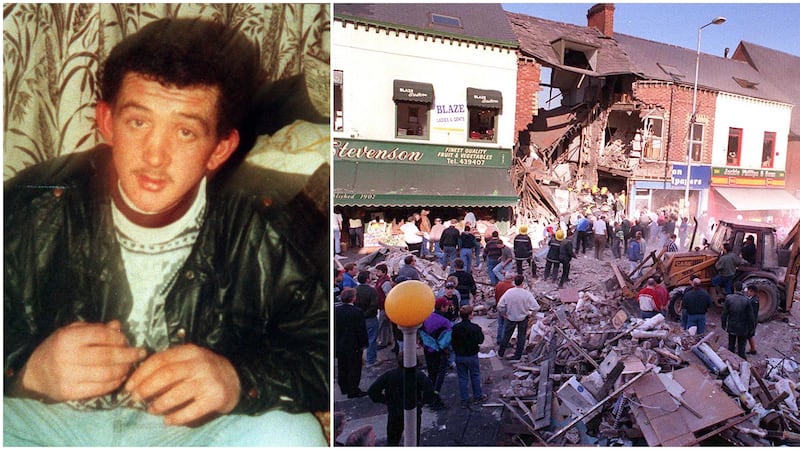Allison Morris’s startling revelations in this paper on Monday concentrated on the role of informers in the IRA leading to the officially authorised killing of loyalists, civilians and other IRA members.
That concentration was because the information came from documents concerning IRA informers stolen from Castlereagh. It is clear that the handlers of those informers often didn’t act to prevent killing in case their sources were revealed.
The most egregious example given was the multiple killing in Frizzell’s fish shop on the Shankill which caused loyalist retaliation resulting in over a dozen sectarian killings in the next week, but also produced a huge political reaction which almost derailed the Downing Street Declaration of December 1993.
Unfortunately there was nothing new in 1993 about the RUC, MI5 and military intelligence playing fast and loose with people’s lives here and it wasn’t just civilians or members of paramilitary groups. In November 1981 Constable William Coulter, a 23-year-old married man was killed in an IRA bomb attack at Unity Flats as Land Rover patrols changed shift. A booby-trap bomb hidden behind a fence exploded killing him and injuring others in the Land Rovers.
It quickly emerged that Special Branch knew about the bomb. Indeed the man who allegedly detonated it by line of sight was arrested next day and charged. The Police Federation complained vociferously that the patrol had not been warned about the bomb. They weren’t told in case it exposed the informant whom the RUC fervently believed would turn supergrass, the prevailing fashion in those days.
The informant did not turn supergrass, withdrew his evidence and all charges were dropped. One policeman was killed, others injured and a family wrecked by someone in Special Branch playing God. After an internal RUC investigation the constable’s widow who had given birth to a son three weeks after his killing was awarded a substantial five figure sum in compensation by the High Court. It wasn’t the first time this sequence of events occurred and of course we know of umpteen other examples over the next twenty years.
Thanks to Baroness O’Loan’s time as Police Ombudsman we know this sort of intelligence chicanery leading to the death of civilians, paramilitaries and security force members was just as prevalent with handlers of loyalist killers as with the IRA.
It’s the real reason our proconsul won’t countenance a proper Historical Investigation Unit and for her insistence on ‘national security’ reasons for refusal to disclose any awkward evidence. Astonishingly the DUP is content with that even though it could mean denying relatives of members of the RUC and UDR receiving compensation from the courts. Anything is acceptable rather than admit the security forces were up to all kinds of nefarious activities throughout the Troubles.
We know from recently released state papers how furious the Irish government was when in 1988 Sir Patrick Mayhew announced no prosecutions of any police or military personnel involved in the hayshed shootings in 1982. ``An inquest will be held in due course'', he told the Commons. That was twenty-eight years ago. Five attempts to get the inquest started have failed. The conclusions of the highly classified Stalker-Sampson reports are now well known but no inquiry into security force illegality will ever take place.
The recent revelations of intelligence chicanery about the Shankill bomb and other murky dealings with double agents leading to killing cry out for a public inquiry. The Pat Finucane Centre has pointed out that initially the British government refused an inquiry into the killing of Alexander Litvinenko but the High Court ruled that decision wrong and a public inquiry ensued which, with no cooperation from the perpetrators, published important findings about the culprits.
That process demonstrates that even with opposition from the British government successful inquiries could be held despite non-cooperation from paramilitary groups, the Ministry of Defence and PSNI who have become experts at prevarication and obfuscation as evidence in the current investigation by Lord Justice Weir amply demonstrates.
In the face of public knowledge about the illegal activity of the security forces in allowing killings to take place the British government’s refusal of adequate investigative procedures holds the concept of the rule of law during the Troubles up to ridicule.









